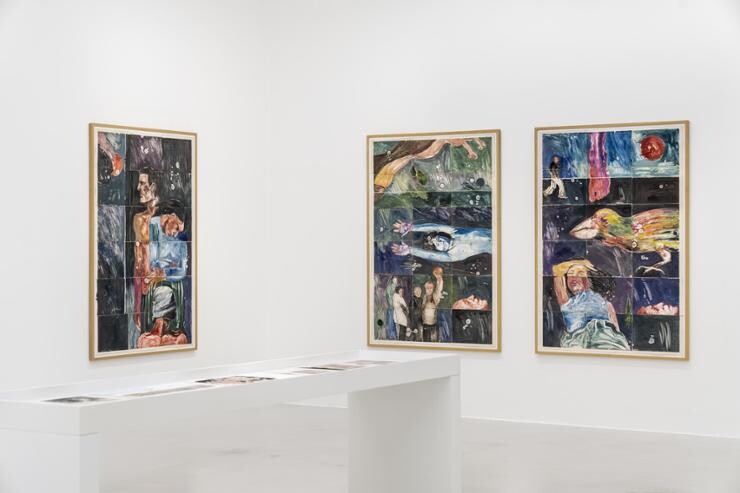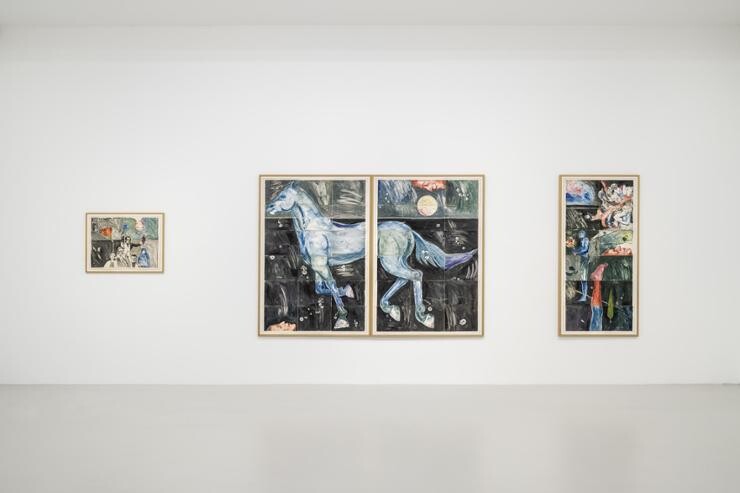
Seoul's Barakat Contemporary is hosting "Someone is Coming with a Flower," a poignant solo exhibition by Nicky Nodjoumi, the Iranian-born American painter whose works are deeply intertwined with Iran's tumultuous modern history. Running until January 12, 2025, the exhibition is a rare glimpse into an artist who has turned the political and personal upheavals of his life into powerful, allegorical masterpieces.
Nodjoumi’s career began against the backdrop of Iran’s volatile political climate in the late 1960s. While studying in New York, he became active in the Iranian diaspora’s protests against the Pahlavi regime, channeling his creative energy into politically charged posters. In the 1970s, driven by a sense of duty, he returned to Iran. His decision brought him under the relentless scrutiny of SAVAK, Iran’s secret police, which restricted his professional activities to yearly exhibitions.
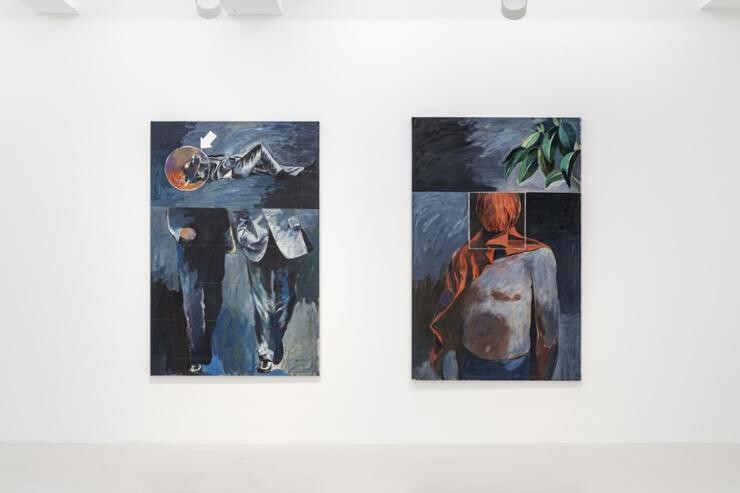
The 1979 Iranian Revolution seemed to promise liberation, and Nodjoumi’s works—critical of the monarchy—were showcased in a grand retrospective at the Tehran Museum of Contemporary Art. Yet his art, unflinching in its critique, also exposed the oppressive realities of the postrevolutionary regime under Ruhollah Khomeini. This dual critique made his exhibition a flashpoint. Public backlash was immediate, and accusations of “vulgarity” led to some of his works being removed. Amid threats to his safety, Nodjoumi fled Iran in September 1980, narrowly escaping the country just hours before Iraq bombed Tehran’s airport, marking the start of the Iran-Iraq War.
In exile, Nodjoumi rebuilt his life in the United States, but the separation from his homeland and his lost artworks remained a haunting theme. His story of exile and artistic resilience became the subject of the HBO documentary "A Revolution on Canvas," co-directed by his daughter, Sara Nodjoumi.
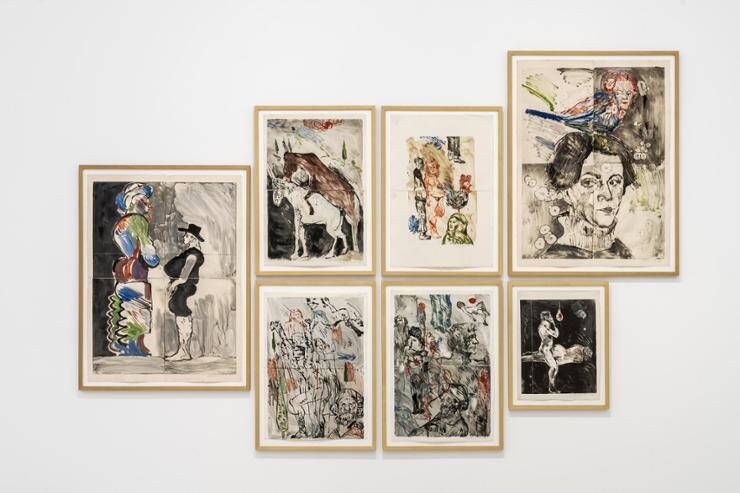
The Seoul exhibition holds special significance. It features over 60 monotypes created shortly after Nodjoumi’s exile to Miami in 1981, as well as three rare pre-Revolution paintings. These monotypes, rendered in raw, expressive brushstrokes and vivid colors, juxtapose the lingering shadows of the Iranian Revolution with the sunlit landscapes of Miami. They reflect an artist grappling with displacement and the burdens of political upheaval.
Nodjoumi’s signature style weaves Middle Eastern political figures, mythical Persian imagery, and symbolic motifs into allegorical canvases. Men in suits, religious leaders, and surreal landscapes populate his works, creating intricate narratives that critique power dynamics and societal structures.
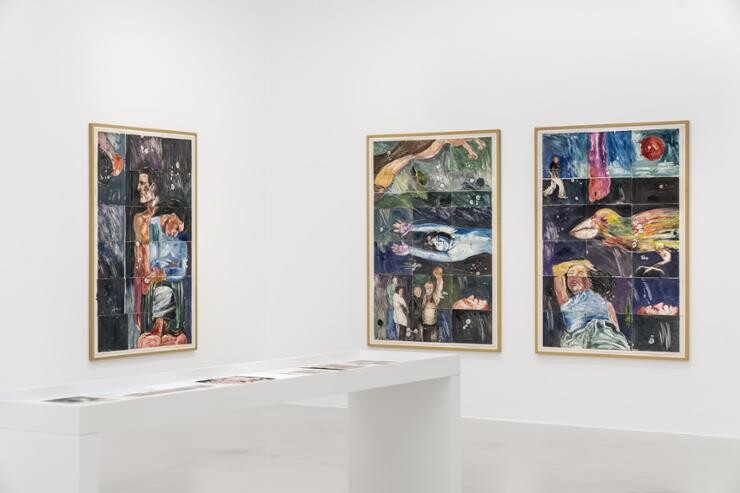
“I believe art should be both aesthetic and political,” Nodjoumi remarked during the exhibition. “As Middle Eastern artists, we face situations where we must raise our voices against injustice.”
"Someone is Coming with a Flower" is not just an exhibition; it is a testament to the enduring power of art as resistance and reflection. Nodjoumi’s deeply personal works invite viewers to reflect on history’s cyclical nature, the cost of dissent, and the universal struggle for justice.
Sayart / Maria Kim, sayart2022@gmail.com


